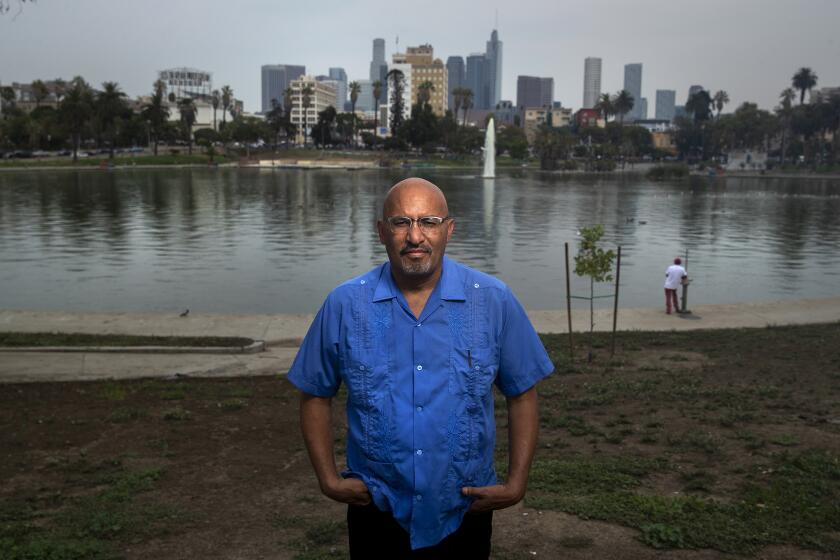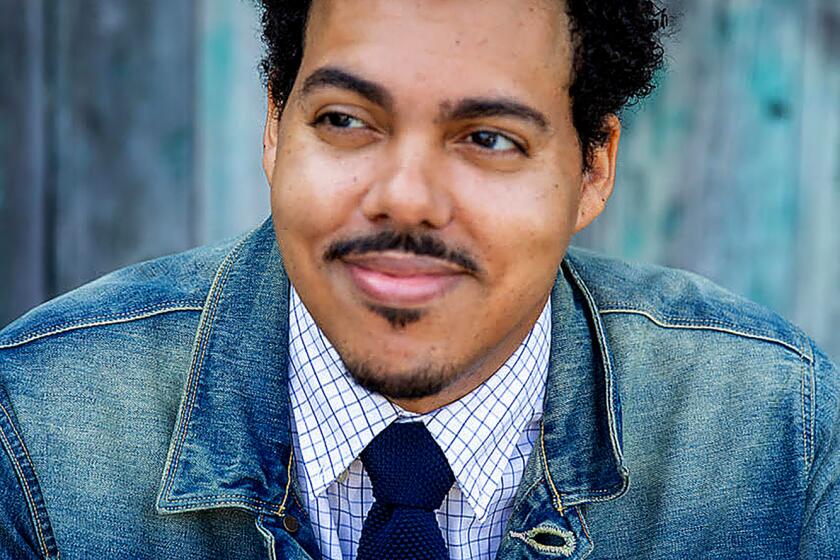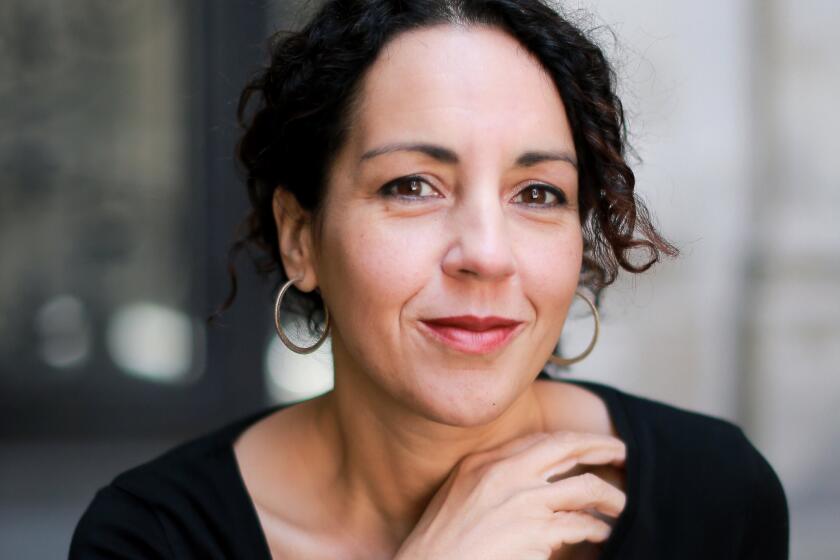At 9, Javier Zamora walked 4,000 miles to the U.S. At 29, he was ready to tell the story
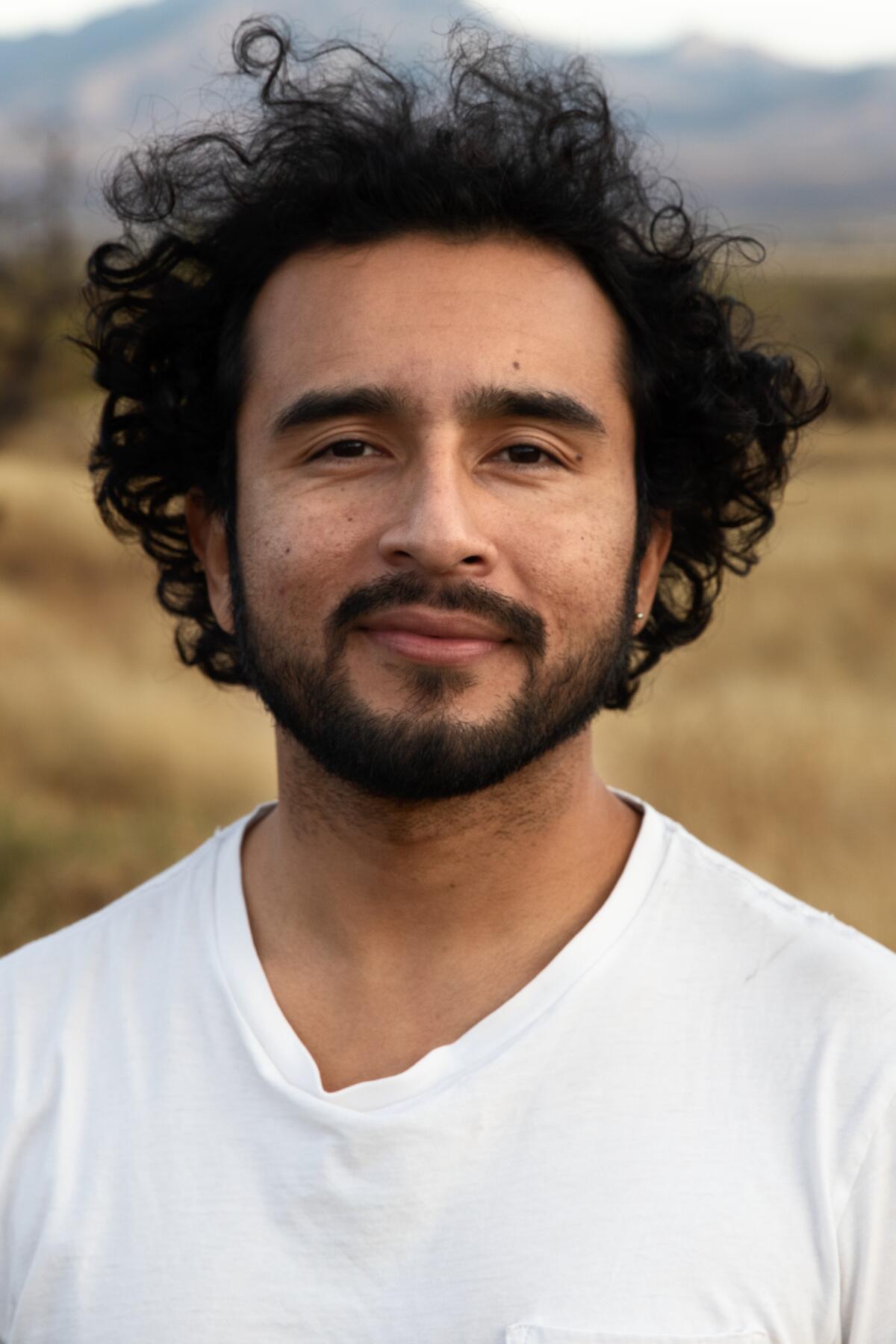
- Share via
On the Shelf
Solito: A Memoir
By Javier Zamora
Hogarth: 400 pages, $28
If you buy books linked on our site, The Times may earn a commission from Bookshop.org, whose fees support independent bookstores.
Javier Zamora hadn’t yet learned to tie his shoes when he began a 4,000-mile journey in 1999.
He was a 9-year-old boy living in El Salvador with his grandparents before he embarked, unaccompanied, on a cross-border trip to reunite with his parents in the United States. What was supposed to be a two-week journey turned into a harrowing two-month trek through Guatemala, Mexico and Arizona.
Nearly two decades later, Zamora thought he had healed from the trauma of his immigration experience. He had published his first poetry collection, “Unaccompanied” — transformed some of those memories into art. He was getting paid to write for the first time. He had a green card. He was a fellow at Harvard’s Radcliffe Institute for Advanced Study.
But he was the most unhappy he’d ever been. “I was drinking heavily, destroying my body, doing drugs, sex,” he recalled recently. So he started writing again, forcing himself to remember what he’d spent so long trying to bury.
In “Unforgetting: A Memoir of Family, Migration, Gangs, and Revolution in the Americas,” Roberto Lovato finally tells the full story of his rebel life.
In his new memoir, “Solito,” Zamora recounts his days crossing the scorching Sonoran Desert, getting detained by Border Patrol agents, meeting strangers along the way who protected him. And he does it through the first-person voice of the 9-year-old boy he had been.
Zamora will discuss “Solito” on Sept. 21 at Beyond Baroque in Venice and on Sept. 22 at Vroman’s in Pasadena. In an interview, he spoke about his book; his perilous journey and its long psychological shadow; and the surrogate family he created along the way. The conversation has been edited for length and clarity.
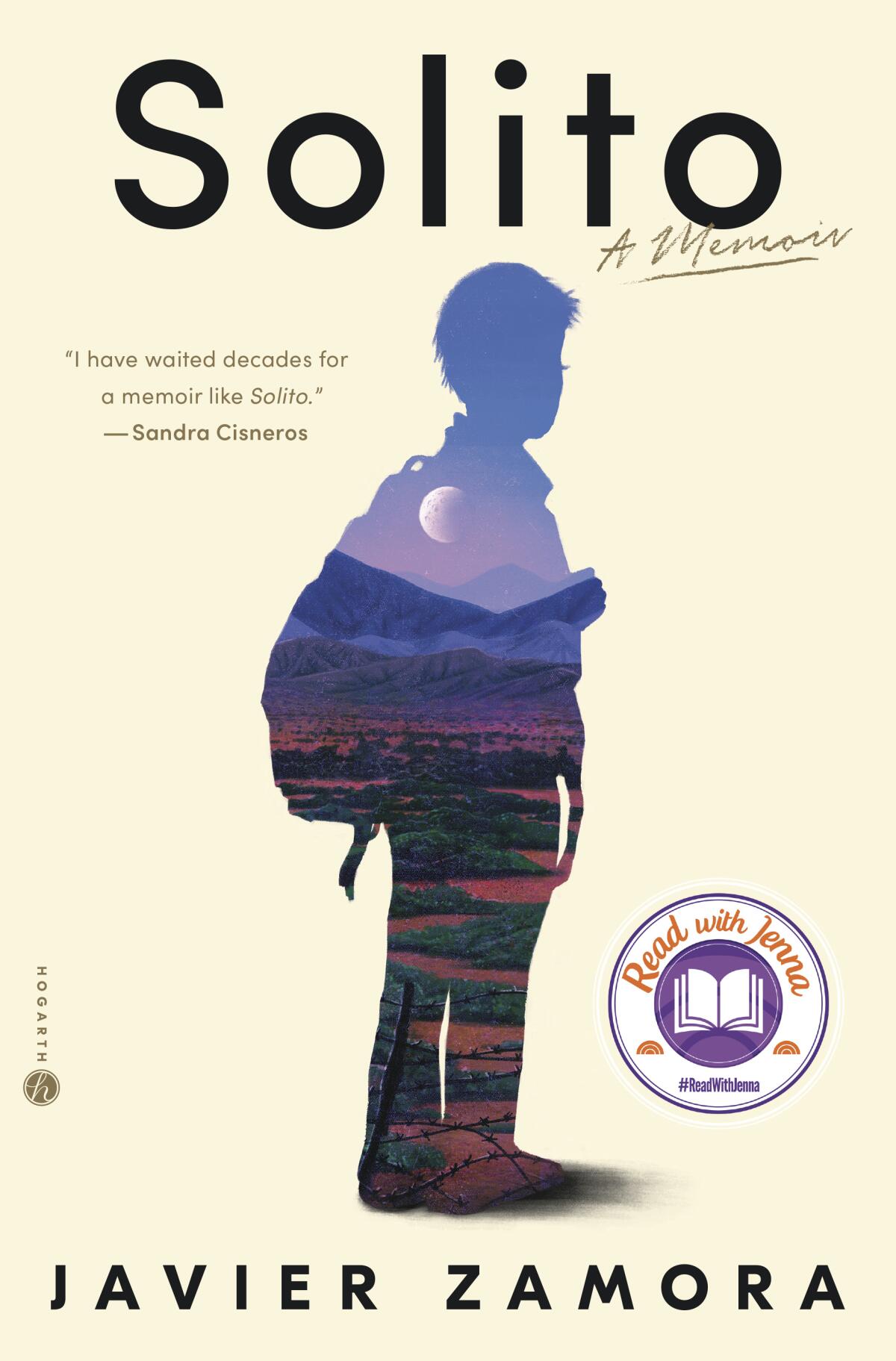
I know your therapist played a critical role in the writing process. How did she help?
Early on in our sessions, my therapist would say, “You really need to spend time with this 9-year-old. You’ve been running away from him, but you can’t. This boy is going to follow you until you die.”
I recognize that now. Since I made it to this country until I was 29, I was ashamed. I was doing what the media does to immigrants — I treated this boy as some defenseless, powerless kid who had no agency, and I was just flattening him out. What writing this book has really shown me is that that kid is a f— superhero. He figured out how to survive and who to attach himself to and how to grow up, sometimes from one day to the next, so he wouldn’t be a nuisance and people wouldn’t leave him behind.
Before and during your journey, your vision of “La USA,” as you call it in the book, is a land of endless swimming pools, McDonald’s, pizza during school lunches. How did that change once you arrived?
That has been the biggest shock. We were poor in El Salvador, but we were rich in a lot of other ways. My life was expansive — there were cornfields I could run through. There were fruit trees that I could climb and grab fruits from. We had iguanas and aguacates [avocados].
Before I came here, I genuinely thought that my parents had a swimming pool, fruit trees in the back. I think a lot of immigrant parents want to tell their children that their departure has been worth it. And their mind goes to material stuff. I don’t remember them ever correcting me.
When I get here, I’m in the car to San Rafael, Calif., and there aren’t as many trees. There are these huge concrete buildings, apartment complexes. When we make it to my parents’ “house,” there’s cement everywhere and cars. I get out and we make it to the door — my parents don’t like to remind me of this, it was heartbreaking to them — but I’m like, “Where is the house?”
Suddenly, my world of hectares of apples and avocados gets crunched into a super small one-bedroom apartment. That becomes the metaphor for the rest of my time in the U.S. The contrast really f—ed with me once the hormones kicked in. I was a good kid up until seventh grade, then I was just angry. That’s when all the questioning started.
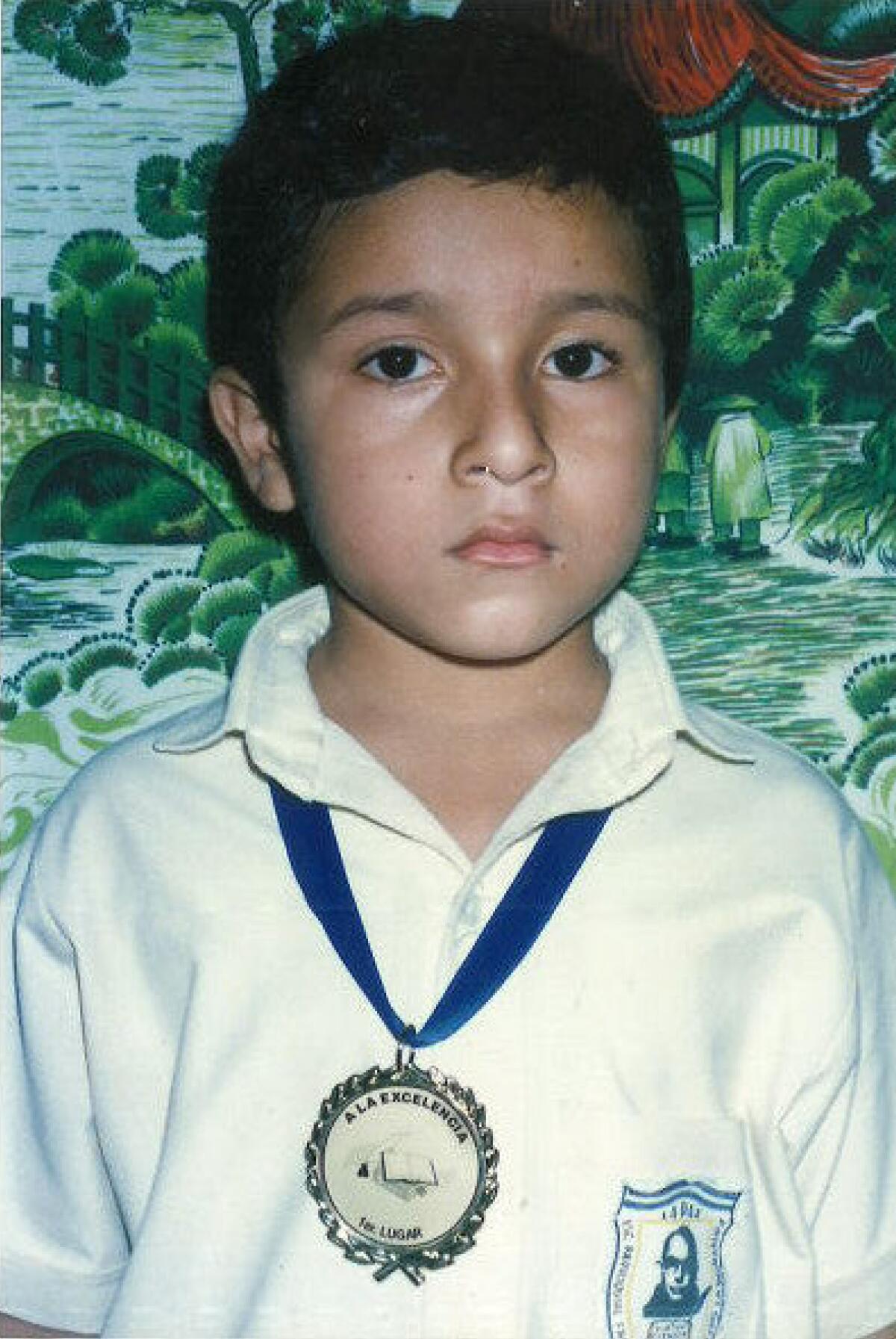
I was struck by how much detail you remember. How did you tap into those memories?
Dreaming, therapy, Reiki would give me an image, a detail or a sentence or name. I would try to capture it by writing about it. That was one day, one paragraph. A typical day, I would have therapy in the morning, then I would try to write because it would unlock a memory.
I was also reading “The Body Keeps the Score,” and that made me honor all the aches that writing this book caused me. I would wake up and the left side of my body would ache. There’s a section in the book where my left arm hurts, and I don’t know why, and in the next paragraph, I realize that Chino [one of the immigrants he met] has been pulling my left hand the entire time. To this day, when I’m stressed, the left side of my body is always where the knots begin.
For decades, poets without legal status were excluded from prizes. A group called Undocupoets changed that — and then founded a prize of its own.
Can you talk about what it was like as an adult revisiting that time of your life?
It was difficult, but I also realized that in the worst days of my life, even when I was full of fear, I found joy, because you have to in order to survive, in order to stay alive. You have to stay positive or else you’re not going to make it.
The biggest lesson I’ve learned in writing this is that humans are amazing animals. We have powerful brains that trick us into blocking the dangers out or pretending something is not occurring even though it’s right in front of you. So instead you focus on the stars, on a cactus and how weird it looks, on the person’s shoes in front of you, because if you focus on everything, you get overwhelmed.
What would you tell 9-year-old Javier now about the journey he was about to embark on?
I would tell him not to go. [Laughs] But it is so hard for me to imagine myself without this trauma. It has completely shaped every single aspect of who I am now. Who I was before then doesn’t exist anymore. I’m learning to love this person that I am now, because for a long time, I hated this person.
During your journey, you had to convince people you were Mexican, and that meant saying words like “popote” instead of “pajilla.” Can you talk about language and its relationship to identity?
I want to quote Dichos de un Bicho, that’s their Instagram handle. They put it this way: For Salvadorans, our first language is caliche. Our second language is Spanish. And our third language is sarcasm. Caliche is our Salvadoran slang.
Everybody that is lower middle class to lower class in El Salvador, we are very proud of our caliche. As an immigrant, that was the first time I realized that we are our own people. Hearing voseo [the use of vos in place of tú] — and learning that Hondurans and some Guatemalans use it — along the immigrant route was like finding home.
In reading the book, I hope that Salvis see themselves in not only the language but the tales. I sprinkled caliche all over because it’s very important on your way up here, but it’s also a metaphor of what it’s like to be an immigrant in the United States.
Jonathan Escoffery’s ‘How I Survive You’ is a highly inventive debut collection of stories about an artist raised by struggling Jamaican immigrants.
How has your relationship with the Sonoran Desert changed since you moved to Tucson?
The last part of my healing journey is that I needed to face the landscape that almost killed me.
I went into the desert thinking that it was just going to be harsh. And instead, I learned that there are monsoons in the desert — it floods, then flowers bloom and bushes that look dead come back to life. Moving there showed me that there’s that one rain cloud that would rain on you, give you water and wake you up from what you perceive to be your death. But it’s not.
I’ve also gotten super spiritual moving here. I think that the desert continues to apologize to me.
On your trip, several adults wound up helping you. Yet you chose the title “Solito” for your memoir. Why?
I want people to question the title at the end. I was literally unaccompanied. I was alone in that I didn’t have a person that I knew, but quickly it stops being a fact and becomes this emotion. But I was never alone. These adults become my family. And so hopefully, by the end of the book, the reader will recognize that.
I know you haven’t seen or heard from those adults — Chino, Patricia or Carla — since 1999. What would you tell them now?
“Gracias.” I don’t think I thanked them, and that’s why I dedicated this book to them. I don’t expect them to read it. I just hope and wish that they pick up the book and see that it’s dedicated to them. They literally saved my life, and they didn’t have to — that was a choice. I hope that they have been repaid for their kindness.
“How Not to Drown in a Glass of Water,” by “Dominicana” author Angie Cruz, is a funny, sharp character study set in Manhattan’s Washington Heights.
- Share via
Watch L.A. Times Today at 7 p.m. on Spectrum News 1 on Channel 1 or live stream on the Spectrum News App. Palos Verdes Peninsula and Orange County viewers can watch on Cox Systems on channel 99.
More to Read
Sign up for our Book Club newsletter
Get the latest news, events and more from the Los Angeles Times Book Club, and help us get L.A. reading and talking.
You may occasionally receive promotional content from the Los Angeles Times.
